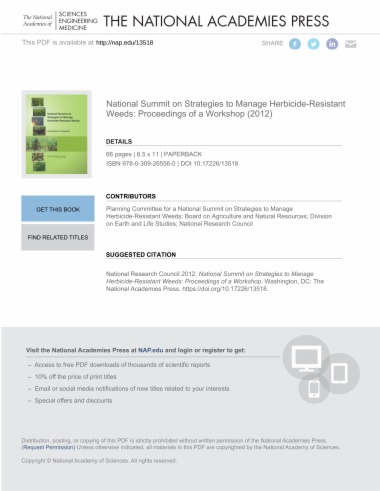

Preserving the efficacy of herbicides and of herbicide-resistance technology depends on awareness of the increasing resistance of weeds to herbicides used in agriculture and coordinated action to address the problem by individuals at the farm level and beyond. This summit served as a venue to bring the attention of important stakeholders to the issue and as an opportunity for experts from diverse disciplines to strategize in a coordinated way to address herbicide-resistant weeds.
In convening stakeholders for this event, participants took a step toward a recommendation from the 2010 National Research Council report The Impact of Genetically Engineered Crops on Farm Sustainability in the United States that federal and state government agencies, private-sector technology developers, universities, farmer organizations, and other relevant stakeholders collaborate to document emerging weed-resistance problems and to develop cost-effective resistance-management programs and practices that preserve effective weed control. The summit provided the opportunity for stakeholders to explore the scientific basis of the emergence of herbicide resistance and to consider different perspectives on both opportunities and barriers to overcoming the problem of herbicide-resistant weeds. National Summit on Strategies to Manage Herbicide-Resistant Weeds contains a brief synopsis of key points made by each speaker at the summit.